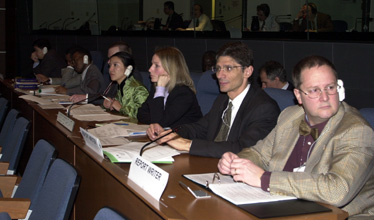|
|
|
Highlights for Monday, 17 March 2003
 |
Delegates to the Open-ended Inter-Sessional Meeting on the Multi-Year Programme of Work for the Conference of the Parties (COP) up to 2010 (MYPOW) of the Convention on Biological Diversity (CBD) convened in Plenary and in two working groups. The Plenary heard opening statements, addressed organizational matters and heard general comments on the outcome of the World Summit on Sustainable Development (WSSD) as it relates to the Convention process. Working Group I (WG-I) started debating the international regime on access and benefit-sharing (ABS). Working Group II (WG-II) began discussing implementation of the Strategic Plan. Above photos l-R: Hamdallah Zedan, CBD Executive Secretary, Hans Hoogeveen, CBD COP-6 President, Olivier Jalbert, CBD Secretariat.
| Opening Plenary: |
| OPENING
STATEMENTS: |
 CBD COP-6 President Hans Hoogeveen (the Netherlands) highlighted the challenge to meet the CBD and WSSD 2010 target to significantly reduce the current rate of biodiversity loss. He welcomed the shift from policy development to implementation. |
 CBD Executive Secretary Hamdallah Zedan noted biodiversity's role in sustainable development and poverty eradication, and outlined the meeting's agenda, stressing its importance for the Convention's future, and the need for a strategic approach. |
 Paul Chabeda, on behalf of UNEP Executive Director Klaus Töpfer, stressed SBSTTA-8's recommendations as a foundation for achieving the 2010 target. |
 Mark Collins, UNEP-World Conservation Monitoring Centre, reported on the meeting "Biodiversity after Johannesburg", held in London, 2-4 March 2003. |
 Shakeel Bhatti, World Intellectual Property Organization (WIPO), reported on the work of WIPO's Committee on Intellectual Property, Genetic Resources, Traditional Knowledge and Folklore, and on cooperation with the CBD on intellectual property issues, including ABS and technology transfer. |
||||
WSSD
OUTCOMES: Chair Hoogeveen stressed the importance of the Johannesburg Declaration and WSSD Plan of Implementation for the Strategic Plan and MYPOW-2010, and noted that WSSD commitments on negotiating an international regime for fair and equitable benefit-sharing, and promoting hot spot areas, ecological networks and corridors, are essential to achieve CDB's objectives. |
||||
 Cameroon, on behalf of the AFRICAN GROUP, highlighted the New Partnership for Africa's Development and, with NORWAY, technology transfer and capacity building. |
||||
 Greece, on behalf of the EU, stressed the need for: a mechanism for CBD's leadership on biodiversity issues; a holistic approach; implementation of Decision VI/23 on invasive alien species; in-depth review of the forest work programme at COP-8; and considering trade practices at SBSTTA-9. |
||||
 JORDAN, supported by many, called for additional financial resources and scientific and technical support to implement WSSD biodiversity-related outcomes. |
||||
|
|
||||
 The AFRICAN GROUP and Mexico (left), on behalf of the LIKE-MINDED MEGADIVERSE COUNTRIES, called for an international legally binding instrument on benefit-sharing, with the latter highlighting recognition and protection of indigenous and local communities' rights, and their participation in decision making. |
||||
 The PHILIPPINES (right) recommended countries adopt their own access legislation, respecting indigenous peoples' land and intellectual property rights. She said a voluntary international regime would not achieve the aim of combating biopiracy. |
||||
| Working Group I: | ||||
ACCESS
AND BENEFIT SHARING: KENYA (right) said the scope should include mutually agreed terms, PIC and, with ALGERIA and MEXICO, added associated traditional knowledge. |
||||
 CANADA said the regime's main elements are already included in CBD provisions, the Bonn Guidelines, the International Treaty on Plant Genetic Resources for Food and Agriculture (ITPGR) and WIPO's work, and stressed ensuring that governments adopt ABS regimes. |
||||
| Working Group II: | ||||
STRATEGIC
PLAN: ALBANIA (right) and HAITI suggested a nationally and regionally differentiated system of indicators, while CANADA wanted to ensure that they can be integrated at the international level. |
||||
 BRAZIL recalled SBSTTA's mandate to assess the status and trends of biodiversity and said that monitoring should not be voluntary. |
||||
 SWITZERLAND proposed a liaison group on biodiversity to regularly report to SBSTTA on achieving the 2010 targets. |
||||
|
|
||||
| CBD Reception: | ||||
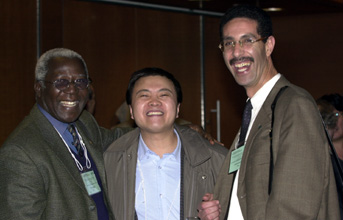 |
 |
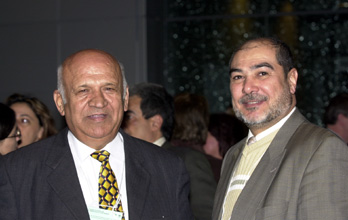 |
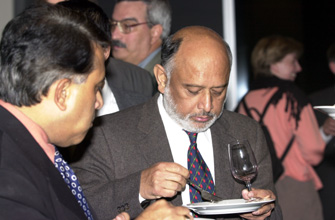 |
 |
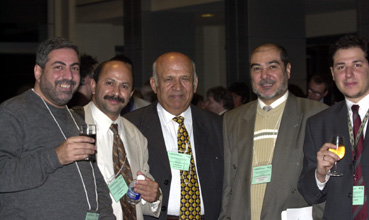 |
 |
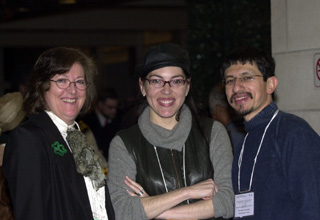 |
 |
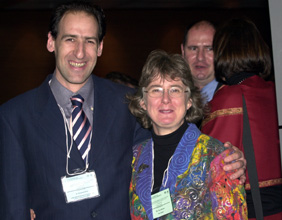 |
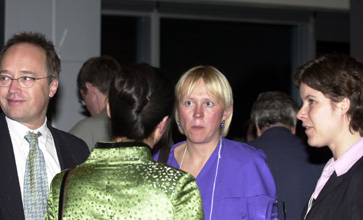 |
 |
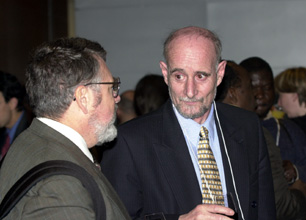 |
 |
 |
 |
 |
 |
 |
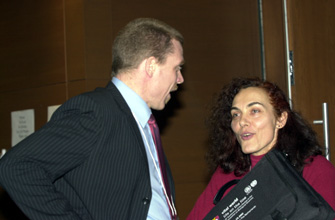 |
| MYPOW SNAPSHOTS: | ||||
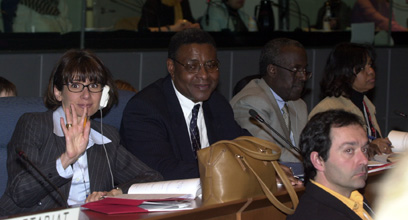 |
 |
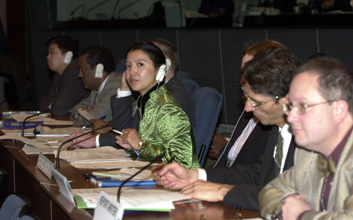 |
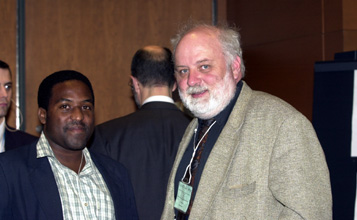 |
|
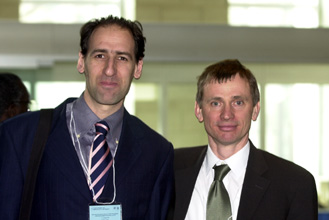 |
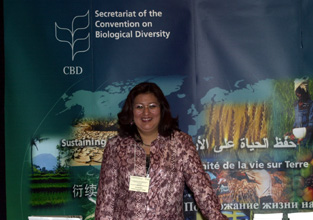 |
 |
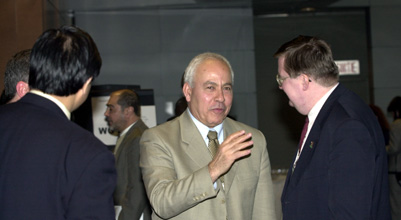 |
 |
|
Links
|
|
Back to Linkages home - Visit IISDnet
- Send e-mail to ENB |



